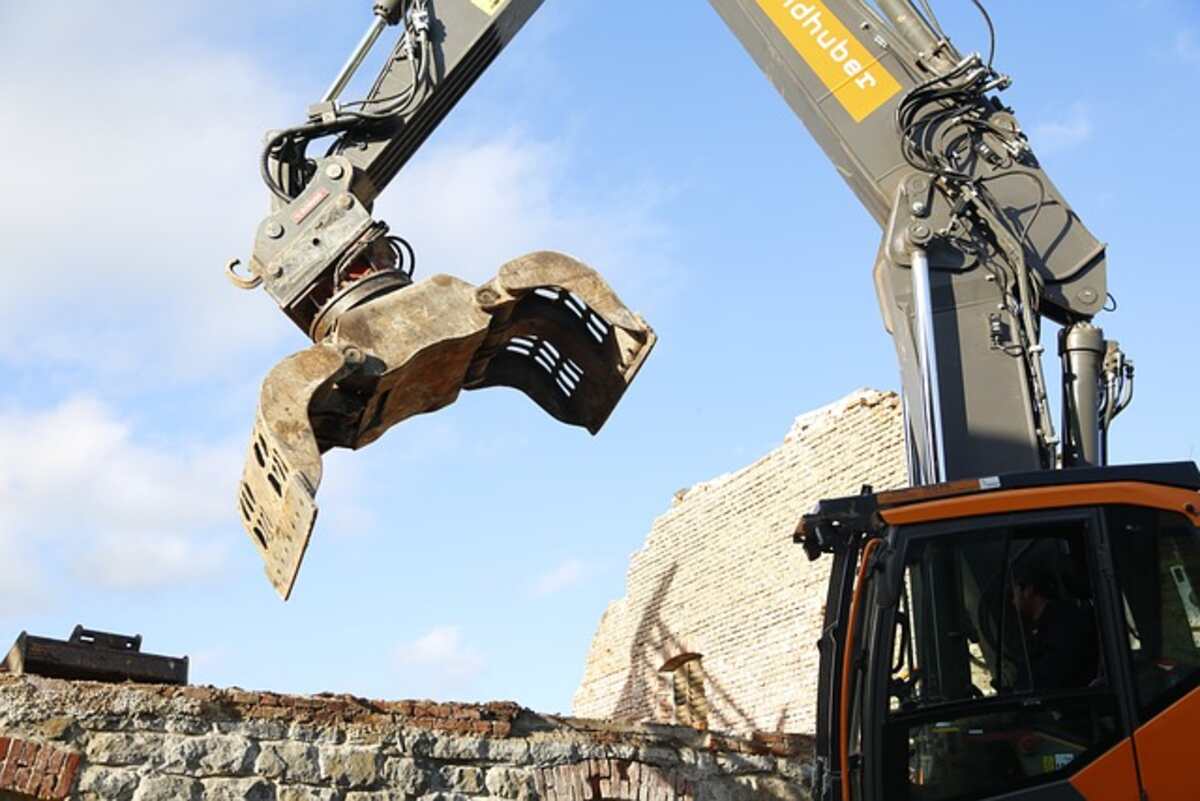If a concrete surface has become irreparably damaged and can no longer be restored through patching or resurfacing, demolition may be the only viable option. The same holds for structures affected by frost heave. Select the best Huntington Beach Demolition.
Concrete demolition tools may include cranes with wrecking balls, mechanical and chemical pressure bursting systems, saws with industrial diamond blades, and hydraulic breakers. Hydro demolition robots use pressurized waterjets to wash away damaged concrete slowly.
Table of Contents
Identifying the Problem
Demolition concrete should not be approached lightly. When done incorrectly, it can cause severe damage to nearby buildings, infrastructure, and the environment. Multiple effective techniques exist for accomplishing the task correctly; selecting one will depend on your individual project requirements.
Some projects require concrete demolition due to deteriorating surfaces, widespread cracks, planned modifications, or frost heave (expansion of parts due to freezing temperatures). Repairing damaged surfaces with decorative concrete patches is typically only considered a temporary fix, and cracks will reappear as soon as the weather warms up again.
Demolition of concrete structures can be dangerous even for experienced professionals due to dealing with heavy machinery that can cause injuries if misused and potentially high noise levels produced by machines, hand tools, and explosives that may lead to hearing loss.
Workers undertaking demolition can also face serious hazards from climbing on or in structures being demolished. Loose concrete can fall on them and be thrown off, trapping them in debris that has to be cleared by rescue personnel. Services such as gas, water, electricity, fuel, and refrigerant in pipes can also be accidentally cut off, which could result in electrical shock, fires, or explosions.
Preparing for the Demolition
Before commencing demolition, any potentially hazardous materials must be cleared away. This includes asbestos, lead paint, and any potentially combustible items like oil tanks or gas lines. Engaging a professional contractor for their removal will help to ensure everyone involved stays safe during the project by using appropriate protective equipment and adhering to all relevant safety protocols.
Size and material considerations also influence how buildings are demolished; smaller structures may be brought down by hand, while larger ones require heavy machinery or explosives for removal. Furthermore, hazardous waste must be properly managed prior to beginning demolition work.
Once all hazardous materials are cleared away, demolition can begin. This usually entails cutting, crushing, and hauling away concrete debris – using tools such as cranes, shears, and excavators – along with strict adherence to applicable environmental and safety regulations.
Before beginning demolition work, demolition contractors should make sure all utilities and services have been disconnected—this may include electricity, sewage, water, and gas services—to protect workers and ensure no unexpected reconnection of these services occurs during demolition work, as this could cause serious injury to themselves and nearby structures or houses.
Finding a Reputable Demolition Company
One of the easiest and best ways to find a demolition contractor is through recommendations from trusted sources like friends, family, and other construction professionals. Their advice may come from personal experience working with these companies or from reviewing reviews online, so you have an idea of what others think. It would be best if you also took note of what other people are saying about these businesses before settling on one.
Before hiring a demolition contractor, be sure to carefully consider their price range and timeline, as well as whether or not they possess all of the equipment needed for your project. In addition, ensure they have a valid license that can help protect you if anything goes amiss during its completion.
A quality demolition contractor will have all of the appropriate tools for their task and use them efficiently and safely. They should also have a plan in place to limit environmental and local infrastructure impact while offering accurate quotes for their work.
It’s crucial to choose a demolition contractor with an impressive safety record. Demolition is an inherently risky activity; hiring an unlicensed company could put both you and your workers at risk. Furthermore, any incident on-site could incur fines or penalties.
Disposing of the Debris
Demolition concrete often generates large volumes of waste materials that must be appropriately disposed of to avoid negative financial and environmental repercussions as well as legal ramifications in certain jurisdictions. If this process is mishandled, however, it may have disastrous results both financially and environmentally.
Debris generated during the demolition of concrete can be quickly and cost-effectively removed using various means. Still, one of the easiest is hiring a professional junk removal service to take care of it for you. This option saves both time and money while adhering to local regulations for disposal.
Donating concrete and other reusable materials is another effective way of keeping them out of landfills and giving them new life. You can find people willing to accept the materials by posting ads on social media, creating flyers, or giving them directly to a maker space or similar organization, which will use them in various projects.
If you’re searching for ways to recycle concrete, try incorporating it into your garden. Concrete makes for excellent materials when building walls, raised beds, or features that require strong foundations, plus decorative uses like garden paths or steps! Just remember that the appropriate tools are being used; for thick concrete applications, a jackhammer would likely be more suitable than others.


